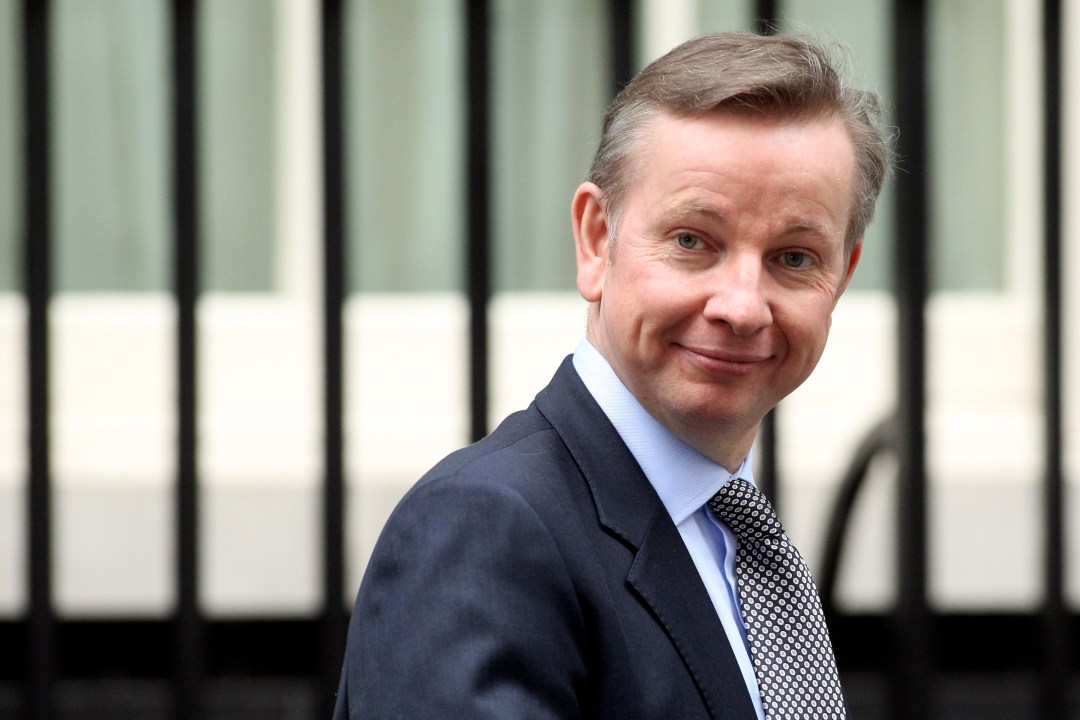 Today marks something of a milestone for Michael Gove’s school reform agenda. Free
schools – i.e. ‘Academies’ which are independently run, yet within the state sector – now account for more than 10 percent of British secondaries. This is what I have always
thought of as a tipping point – where independent schools offer real competition to council schools (i.e. those run by their local authority). One hesitates to sound too confident, but the
genie of choice seems to have been yanked out of the bottle, and a few facts are worth nothing:
Today marks something of a milestone for Michael Gove’s school reform agenda. Free
schools – i.e. ‘Academies’ which are independently run, yet within the state sector – now account for more than 10 percent of British secondaries. This is what I have always
thought of as a tipping point – where independent schools offer real competition to council schools (i.e. those run by their local authority). One hesitates to sound too confident, but the
genie of choice seems to have been yanked out of the bottle, and a few facts are worth nothing:
1. There are now 407 Academies open, twice the amount in May 2010. The 400 mark was, for Tony Blair, totemic – a goal that he made Gordon Brown sign up to as a condition of the handover. It has now been achieved, after a doubling of the inherited figure under Michael Gove. When Ed Balls became schools secretary, he made sure that he pace slowed, and that the Academies’ independence was diluted. Gove revoked that, so all Academies now enjoy the same freedoms. And, of course, under Labour only a failing school could be given Academy status. Gove dropped this criteria, hence the application rush.
2. This pace is faster than Gove predicted. In October, he said he wanted 400 by the autumn of 2011. He has hit this already. New inquiries, and applications for Academy status, have snowballed. And why? Because schools are helping each other. In the Baker era, it took a pretty brave school to take on the system and apply for the new direct-grant status. You’d be appealing to central government, then taking on the unions alone. But now, state schools can see their neighbour in the next town achieve Academy status without much fuss – wrestling free from council control. It appears to be contagious. See the below table. And a further 254 school applications are being processed, which would take the total to 15 percent.

3. Gove is not hounding them. He has become an observer, as schools send in their applications for Academy status. In the week before Christmas, his department received 64 applications – they can be processed as quickly as two months. Word is getting out: freedom from the local authority is plausible, easy to acquire, and brings huge dividends. Pace is much faster than under Labour, where Adonis was pretty much dragged into the High Court for every Academy that opened.
4. The unions appear to be losing the battle. Or at least when it comes to state schools who acquire Academy status. A few months ago, Ed Howker and I wrote a cover story exploring the severity of the tactics used to intimidate headteachers. The ones who make it past the unions are pretty determined.
5. Academies as the drivers of change. It might be that liberated existing schools – i.e. the new Academies – will be the drivers of change, rather than new schools set up from scratch. The obstacles placed in front of people who want to set up new schools (like my colleague Toby Young) remain depressingly high, and no profit means there is not a clear business case for companies – who have the most heft – to plough their way through the red tape. But perhaps the newborn Academies might expand, thereby providing the extra capacity that makes choice real. If funding follows pupils, there is a clear incentive.
6. This is a Labour and Conservative triumph. The first steps to reform are always the hardest – and Gove would never have come this far had Blair and Adonis not set up the system and protected it from its enemies, in the first few years. As I blogged in August, the latest GCSE results show the difference Academies can make. Seldom has a social programme been so quickly vindicated. Here are some real, hard results for Cameron – coming at a speed that Blair dreamed about.
7. But the victory here is, above all, a victory by teachers – won for pupils. The Baker/Adonis/Blair/Gove agenda is about making powers available to teachers who think they can do better for their schools. Behind every statistic in the Academies success story lies tales of incredible courage from headmasters and staff who turn around failing schools – or find ways to make good ones better. The enemy defeating the teachers’ unions is not Michael Gove – it is other teachers. All power to them.
As for new Academies, the so-called ‘free schools’, it’s worth looking a little deeper at the poll conducted by the National Union of Teachers which Toby fisked. To the question “Are you in favour or against setting up a ‘free school’ in your area?’ there were 31 per cent against and 26 per cent in favour. This is extraordinary, seeing as the poll suggested whether the respondents themselves would like to take part.
UPDATE: Under the Gove system, there are only two categories of state school: Academies and council schools. At present, all 407 Academies are former state schools. From the next academic year, they will be joined by new Academies: start-ups currently referred to as “free schools”. But, operationally, the only difference between “free schools” and “Academies” is how they came into being. I suspect the distinction will be dropped, as it suggests two different types of beasts.








Comments